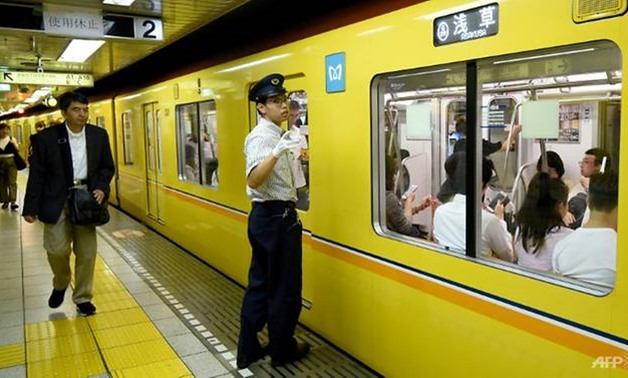
A total of 259 candidates are running for seats in the chamber that administers a city that is home to nearly 14 million people. (Photo: AFP/Toru YAMANAKA)
TOKYO - 2 July 2017: Tokyo goes to the polls Sunday in a local election that could have national consequences as the capital's governor mounts a challenge to the party of Prime Minister Shinzo Abe, whose popularity has slumped.
Former TV anchorwoman Yuriko Koike is hoping her coalition can beat the local arm of Abe's ruling Liberal Democratic Party (LDP), which holds a majority in the 127-seat Tokyo assembly.
Koike, who was elected as governor in a landslide last year, is rumoured to have her eye on Abe's job.
The energetic 64-year-old quit the LDP this month to form her own party, Tomin First no Kai (Tokyo Residents First), and is hoping to storm the male-dominated chamber after forging an alliance with the local chapter of the Komeito party.
Polls suggest the LDP could lose its leading position to Koike's coalition.
With approval ratings topping 60 percent, Koike has pushed to rein in overspending on the Tokyo 2020 Olympic stadium and venues, cultivating an image that she would leave no stone unturned in cutting wasteful expenses under the LDP's watch.
The popular politician has upturned convention by allowing television cameras into what were traditionally closed-door meetings.
A former defence and environment minister, she is also responsible for overseeing a controversial relocation of the world famous Tsukiji fish market.
A total of 259 candidates are running for seats in the chamber that administers a city that is home to nearly 14 million people.
Polls open at 7:00 am (2200 GMT Saturday) and are expected to close by 8:00 pm.
While the vote is local, it is an important indicator of national political sentiment and comes as Abe, who was elected prime minister in late 2012, suffers a series of setbacks.
This week, his defence minister Tomomi Inada was in hot water over remarks she made at a local LDP rally. She asked for voters' support and said it was a request from her ministry and the Self-Defense Forces, Japan's military.
The SDF is supposed to be politically neutral, and Inada retracted the remark.
Abe, 62, is also under fire over allegations he showed favouratism to a friend in a business deal.
The claims come a few months after the conservative premier was forced to deny he had connections to the controversial director of a school which had purchased government land at a huge discount -- and counted Abe's wife as its honorary principal.
A recent poll by public broadcaster NHK showed Abe's government had a 48 percent support rating, down three percentage points from a month earlier. His disapproval rating rose six percentage points to 36 percent, the survey showed.
All of the LDP's 57 candidates won assembly seats in the last city election in 2013 when Abe was riding high in the polls and pushing a plan to kickstart Japan's long-lumbering economy.

Comments
Leave a Comment